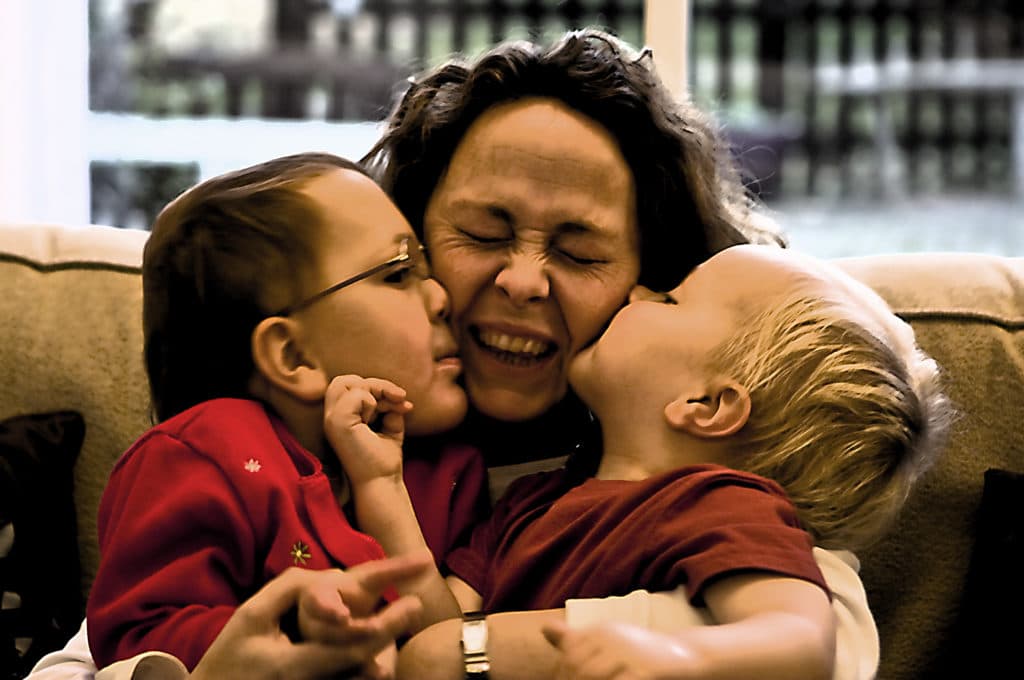Parenting is more complex than we think. We need to know how to parent each child a little differently. We also need to know how to parent each child in each developmental stage a little differently. Parenting a five year old is very different than parenting a teenager, parenting a quiet introverted child is different than parenting a bubbly extroverted child, although the respect is the same for all conditions.
For example, we try our best to treat our children with respect. This does not mean we always agree with them. But we can learn how to say no and how to disagree without demeaning them, guilting them, or shaming them.
Parent counseling provides the basic attitude and the style of communication that goes with parenting our children through each of the developmental phases. If we have the language to speak with our children at each phase but do not have the attitude, it can come across cold or demeaning. The attitude comes from empathy, based on the phase of life they are in. Do you remember how it was for you at that age?
Therapy for Parents for the Benefit of the Kids
Parent therapy or even marriage counseling is the ideal way of benefiting our children. A child and parent are so close and so bonded that the maturing of the parents is the maturing of the child. When the parents cannot guide the children and model the attitude and behavior they are asking of in their children, it is time for help. We can’t know everything.
See: Parenting outer child and inner child
For example, how many times have we seen our kids react negatively to our stressed out attitudes and then perk up when we are more relaxed and have a clear view on things. They can relax when we know how to say yes and no as wisely as possible.
Helping parents to understand the complexity of their children and then what to do is the job of the psychotherapist.
Parenting Teens: Nine Basic Attitudes
Parenting teens, begins with a few basic principles that apply in almost all situations.
- Be as patient as possible. Teens are beginning a new stage of life that is very unknown to them. Their arrogance covers up vulnerability and lack of understanding.
- Criticizing their mistakes makes it worse. They feel bad enough, even though they may not share that with you and they may not even be aware of their struggle.
- Telling them over and over that they need to take more responsibility is not helpful. Appreciate the smallest success and follow-through, even if it is partial success.
- Parenting is very different in the teen years. This stage is more like that of a consultant. They really do need to learn from their mistakes and successes.
- Listen, listen, listen (even if they are not talking to you). Listen to their silence. They need your presence, they need to know you are there.
- It is important to listen to your teen without judgement, they are running some ideas past you, just as they would a consultant. Ask questions instead of giving advice.
- Teens need to find their own way, so having a consultant in their corner makes it so much easier. Otherwise, they listen to their friends for guidance and that could be the blind leading the blind.
- We can listen and say no without being mean. “I’m sorry that you do not like my decision. No you cannot do that.” Then do not get sucked into an argument.
- After listening to your teen adult, when it is time to say something, make it short and to the point, anything over three sentences is a monologue, sometimes even two.
 Counseling for parents is learning how to understand certain behaviors. Some behaviors or attitudes we perceive in our children are personality styles that we may not know what to do with. We need to learn how to talk with our child about their behavior or just let it go as a natural part of an emerging personality.
Counseling for parents is learning how to understand certain behaviors. Some behaviors or attitudes we perceive in our children are personality styles that we may not know what to do with. We need to learn how to talk with our child about their behavior or just let it go as a natural part of an emerging personality.
For example, a child may not be doing well in school. The teachers are telling you and your child that he/she needs to try harder. The parents agree so they beginning telling their child they are lazy(shaming), they tell them if they don’t try more they will not get a good job(fear), or “I know you could do better, you just don’t care”(guilt).
Using negative motivation only creates low self esteem and a break in the open communication with parents. Also, it gets in the way of the real problem that is causing the apathy. They may be sad about something, they may be afraid of something in the future, or just not understand the material at school and have shut down.
 Therapy for parents provides an opportunity for parents to learn how their own parents are playing into the relationship with their children. Commonly we think, “If I had a mean mother or father, I will be mean.” Maybe, it can also have the opposite effect of, “I do not want to be mean like my parents with my children but then how do I set boundaries and limits with the kids.”
Therapy for parents provides an opportunity for parents to learn how their own parents are playing into the relationship with their children. Commonly we think, “If I had a mean mother or father, I will be mean.” Maybe, it can also have the opposite effect of, “I do not want to be mean like my parents with my children but then how do I set boundaries and limits with the kids.”
“Tell me what you fear and I will tell you what has happened to you.”
For more on this topic:
Parenting teens begins with a few basic principals
Teen Challenges: communication

